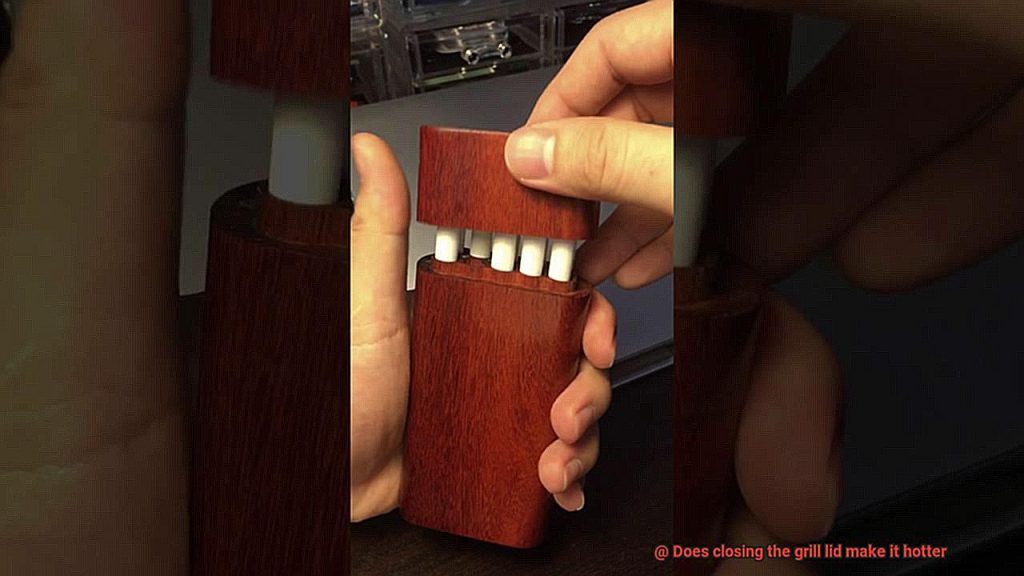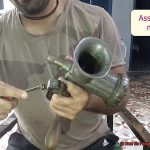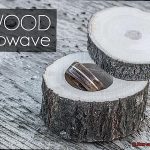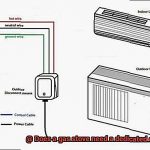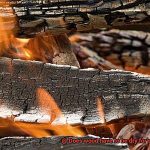Are you a grill master looking to up your game, or a newbie backyard BBQ enthusiast eager to learn the tricks of the trade? The age-old question of whether closing the grill lid makes it hotter has been debated by grillers for years. Some swear by leaving the lid open for better air circulation and faster cooking times, while others insist on always keeping it closed for even heat distribution and minimal heat loss.
But fear not, fellow grilling enthusiasts. In this blog post, we’ll delve into the science behind grilling temperatures and explore the relationship between the grill lid and cooking surface heat. We’ll examine why heat is crucial to the grilling process, how the grill lid traps and circulates heat, and what factors can affect its effectiveness.
So get ready to fire up that grill and settle this debate once and for all. By the end of this post, you’ll have a better understanding of whether closing that lid really does make it hotter or not. Plus, we’ll share some tips on how to use this technique to take your grilling game to the next level. Let’s dive in.
Contents
What is a Grill Lid?
Grilling is an art that requires precision and attention to detail. One of the most critical components of a grill is the grill lid. A grill lid is a cover that goes over the grill, which can be opened and closed. It’s not just an accessory that comes with your grill, but it plays a crucial role in cooking your food to perfection.
The primary purpose of a grill lid is to contain heat inside the grill and create an oven-like environment that circulates hot air around the food. This convection effect allows for even cooking and prevents hot spots on the grill surface. Moreover, it protects the grill from outside elements such as rain, wind, and debris.
Grill lids come in different shapes and sizes depending on the type of grill. Gas grills usually have a dome-shaped lid, while charcoal grills have a flat top with vents to control airflow. It’s important to note that leaving the lid open for too long can cause the temperature to drop. Thus, the lid should only be opened when necessary, such as when flipping or checking on food.
Closing the lid traps heat inside the grill, creating an oven-like environment that circulates hot air around the food. However, it’s essential to understand that closing the lid doesn’t always mean that your food will cook faster. It depends on what you’re cooking and how you want it cooked. Here are some sub-topics to keep in mind when using a grill lid:
- Timing: Leaving the lid open for too long can cause the temperature to drop, while keeping it closed for too long can result in overcooking or burning your food.
- Heat regulation: The lid helps regulate temperature by controlling airflow inside the grill. This means you can adjust the temperature by opening or closing the vents or adjusting the burner settings.
- Protection: A grill lid also protects your grill from outside elements such as rain, wind, and debris.
How Does Closing the Grill Lid Make it Hotter?
Grilling is a beloved pastime for many, and mastering the art requires a combination of skill and science. One of the most valuable tools in a grill master’s arsenal is the grill lid, but have you ever wondered how closing it actually makes your grill hotter?
The answer lies in convection currents. When the grill lid is closed, it creates a circular flow of hot air around your food. This ensures that your food cooks evenly from all sides, resulting in perfectly cooked and delicious dishes. Without the lid, heat would only be coming from one direction, making it difficult to control the temperature and potentially leading to uneven cooking.
But that’s not all – closing the lid also creates an oven-like effect that traps heat inside the grill. This means that your food cooks more quickly and efficiently, saving you time and energy. Additionally, keeping the lid closed helps to retain smoke and flavors inside the grill, enhancing the taste of your food.
Of course, it’s important to remember that closing the lid isn’t always necessary or desirable for every type of food. Delicate or moist foods like fish or vegetables may need to be grilled with the lid open to prevent overcooking or drying out. It’s essential to pay attention to what you’re cooking and adjust accordingly.
Benefits of Closing the Grill Lid
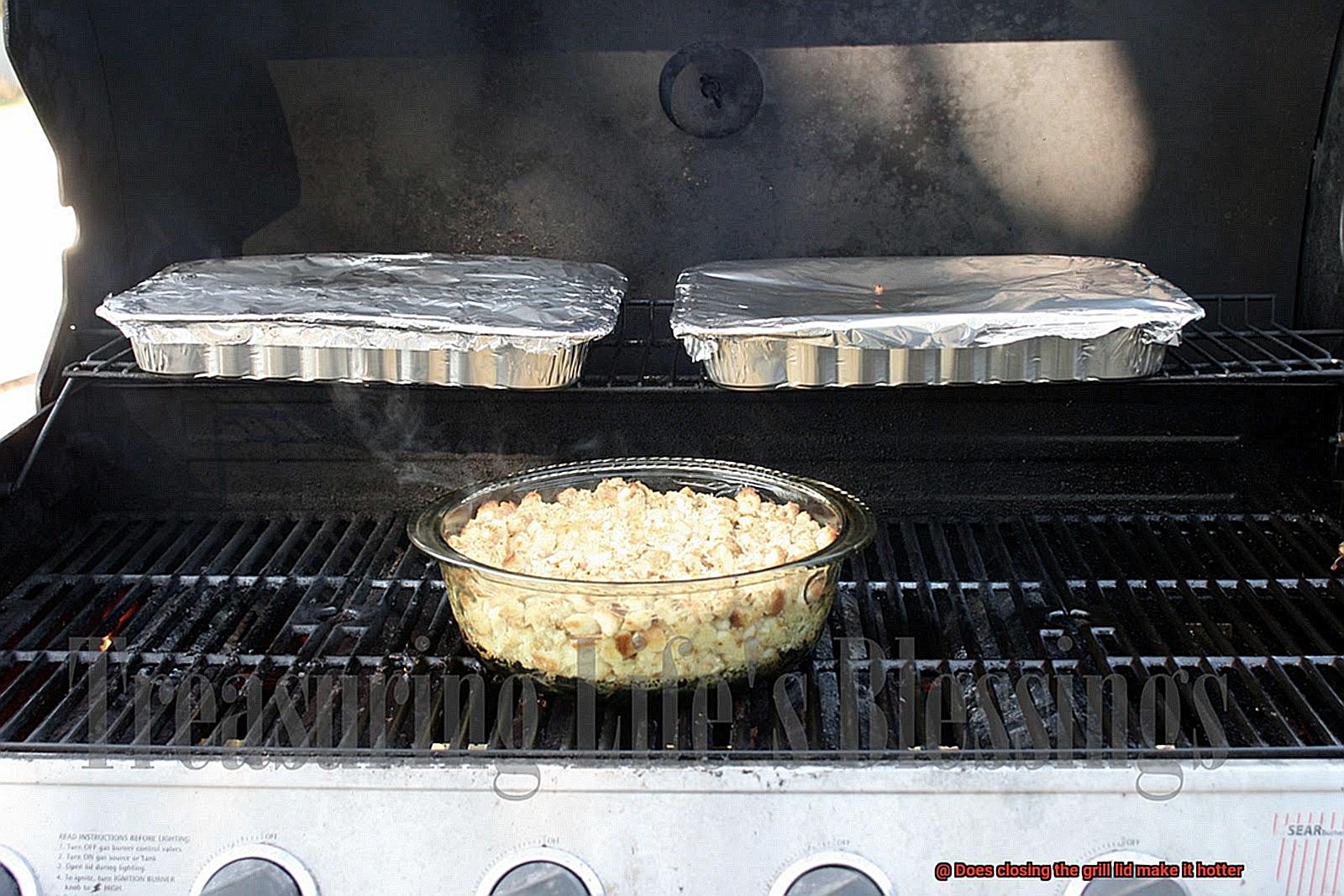
As a grill master, you know that the secret to mouth-watering grilled food is in the details. And one of those crucial details is closing the grill lid. Let me share with you why this simple action can make all the difference in your grilling game.
First and foremost, closing the grill lid helps to retain heat and maintain a consistent cooking temperature. Heat escapes from the grill when the lid is open, which can cause an uneven cooking temperature and result in undercooked or overcooked food. But by closing the lid, you can trap the heat inside and create a convection effect that circulates hot air around your food. This leads to faster and more even cooking, ensuring that every bite is perfectly grilled.
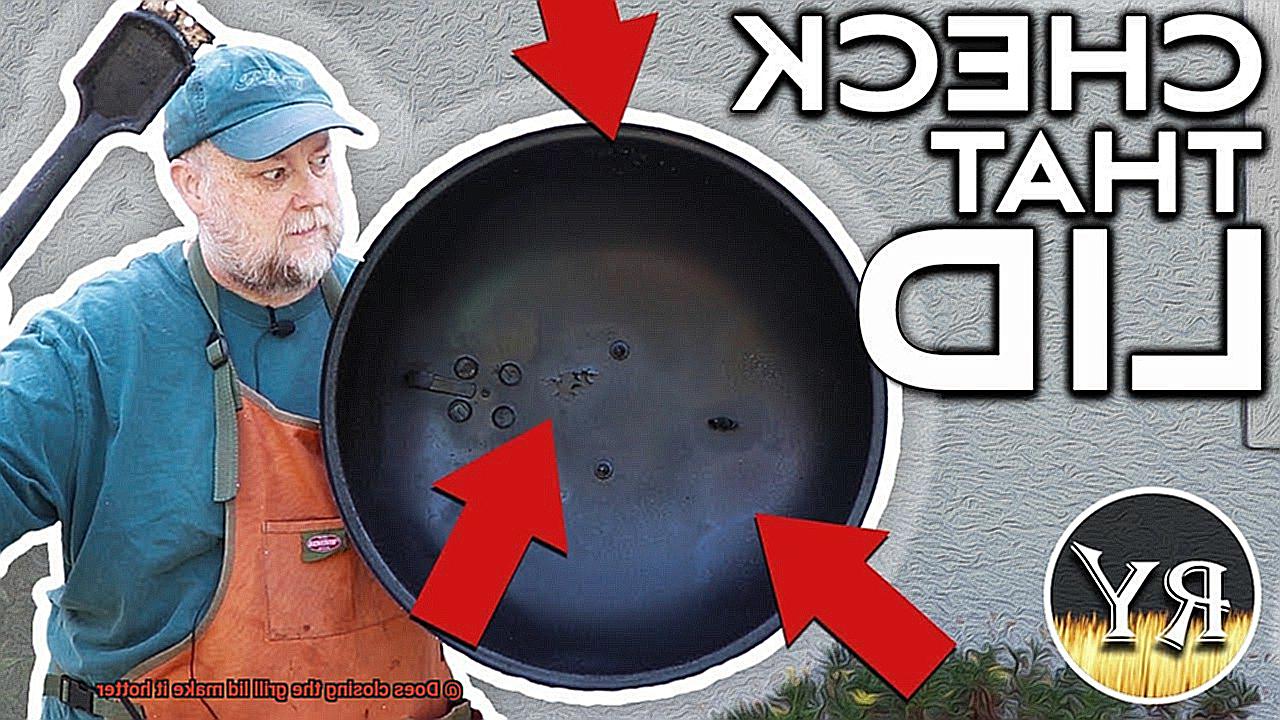
In addition to even cooking, closing the grill lid also helps to lock in moisture and flavor. When you cook with the lid open, steam and juices escape from the food, causing it to dry out and lose flavor. But by closing the lid, you can trap the steam and juices inside and create a moist and flavorful dish that will leave your taste buds singing.
Another benefit of closing the grill lid is that it helps to prevent flare-ups and charring. When fat drips onto the flames, it can cause flare-ups that can quickly char your food. But by closing the lid, you reduce the oxygen supply to the flames and prevent flare-ups from occurring. This means that your food will be perfectly grilled without any burnt spots or charring.
Lastly, closing the grill lid also helps to keep your grill clean. When you cook with the lid open, debris and ash from charcoal or wood chips can get blown around by wind or scattered by your movements. This can make cleaning up after your grilling session a messy and time-consuming task. But by closing the lid, you can keep all of this debris contained inside the grill, making cleanup much easier and less of a hassle.
Considerations When Closing the Grill Lid
Before you do, it’s important to consider whether or not to close the grill lid. As a seasoned grill master, I am here to guide you through the factors that can impact this decision.
Firstly, closing the grill lid can create a convection effect within the grill, which means that hot air circulates around the food, cooking it more evenly and efficiently. However, if you have a gas grill, it’s crucial not to leave the lid closed for too long as carbon monoxide buildup can occur.
The type of food you’re grilling is another critical consideration. For instance, if you are cooking something that needs high heat and a quick sear, like a sizzling steak or burger, leaving the lid open may be preferable as it allows for better browning. On the other hand, if you’re cooking something that requires longer cooking times, such as tender chicken or mouth-watering ribs, closing the lid can help keep the heat consistent and prevent flare-ups.
Moreover, weather conditions play a significant role in the effectiveness of closing the grill lid. Windy days can make it challenging to maintain a consistent temperature with the lid open. Conversely, if it’s sweltering outside, leaving the lid closed for too long can lead to overcooking or even burning your food.
Tips for Using the Grill Lid Effectively
Grilling is a beloved pastime and mastering the art of using the grill lid effectively can take your grilling game to the next level. While some may assume that closing the grill lid automatically makes it hotter, there are specific ways to use the lid that can increase heat and airflow within the grill. Here are some tips to help you achieve perfection on your next barbecue:
Preheat with the lid closed
One crucial tip for effective grill lid use is to preheat the grill with the lid closed. This allows heat to build up inside the grill and creates an even cooking environment.
Use a thermometer
Cooking at the right temperature is essential for a perfectly cooked meal. Using a thermometer to monitor the heat inside the grill will help you know when it’s time to open or close the lid.
Don’t open too often
Every time you open the lid, heat escapes from the grill, making it harder to maintain a consistent temperature. To achieve even cooking, try to keep the lid closed as much as possible while still monitoring your food.
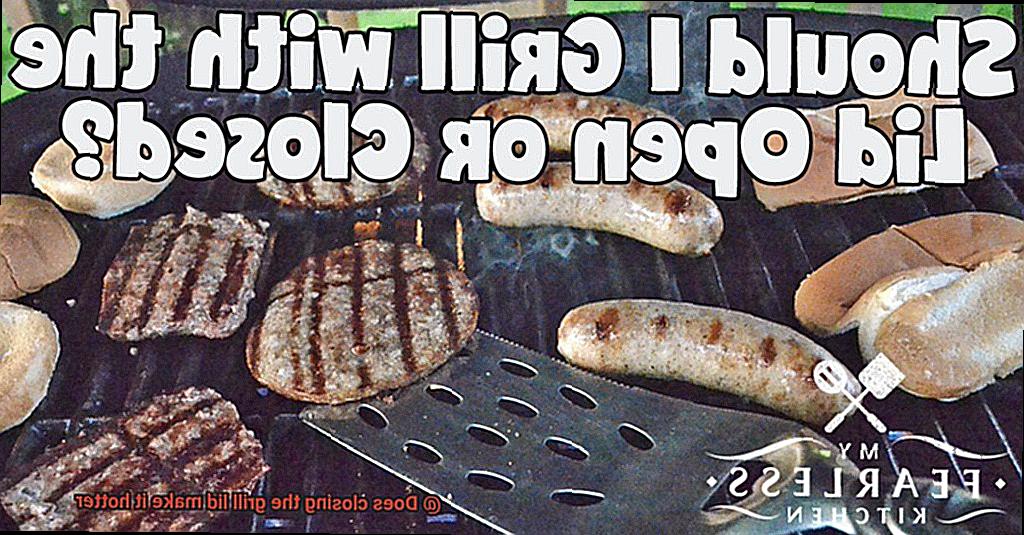
Adjust the vents
Most grills have vents that you can adjust to control airflow and temperature inside. Opening the vents will allow more oxygen into the grill, making it hotter, while closing them will reduce heat.
Use it for smoking
The grill lid is an excellent tool for smoking food when using wood chips or charcoal. Closing the lid can trap in smoke and flavor, enhancing the taste of your food and providing a smokier flavor profile.
Different Types of Grills and Their Impact on Heat Retention
Grilling is a beloved pastime, but the type of grill you use can significantly impact heat retention and how hot it gets when the lid is closed. Let’s explore the different types of grills and their impact on heat retention.
Gas Grills: Convenience vs. Heat Retention
Gas grills are popular for their convenience and ease of use. They have a metal grate that heats up when turned on and a lid that can be closed to trap heat inside. However, gas grills may not retain heat as well as other types of grills, especially if they are not properly insulated. This means that closing the lid on a gas grill may not make as much of a difference in temperature compared to other grills.
Charcoal Grills: High Heat Retention for Delicious Flavors
Charcoal grills use charcoal as a fuel source and are known for their ability to get extremely hot. When the lid is closed on a charcoal grill, it can trap heat inside, allowing for even cooking and delicious smoky flavors. However, charcoal grills can be more difficult to use than gas grills and require more time to set up and clean up.
Electric Grills: Convenience and Affordability
Electric grills are becoming more popular due to their convenience and ease of use. They have an electric heating element that heats up quickly and a lid that can be closed to trap heat inside. Electric grills may not get as hot as gas or charcoal grills, but they are often more affordable and easier to use.
Material Matters: Cast Iron Grills Retain Heat Better
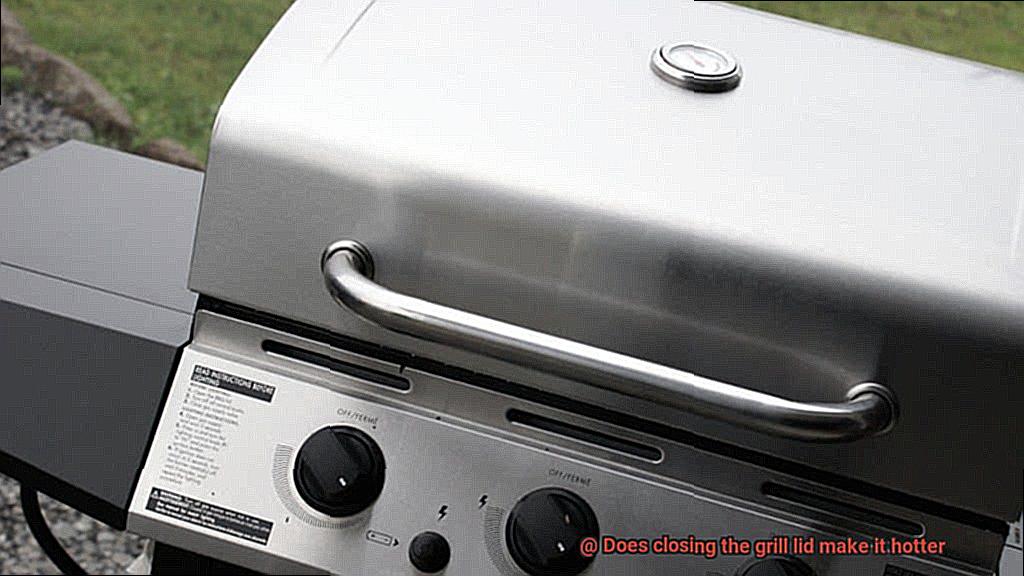
The material of the grill also plays a role in heat retention. Cast iron grills, for example, are known for their excellent heat retention. Grills with thicker walls can also retain heat better than those with thinner walls. Additionally, some grills have better insulation than others, which can affect heat retention.
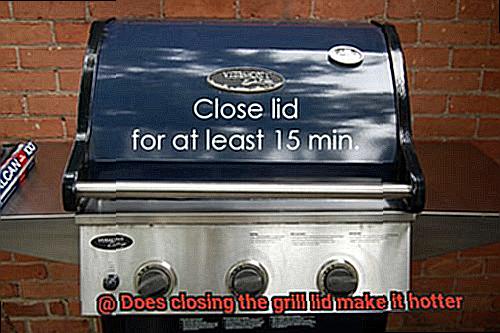
Experimentation is Key: Determine What Works Best for You
Ultimately, the type of grill you choose and how well it retains heat when the lid is closed can impact whether or not closing the lid makes it hotter. It’s important to experiment with different settings and techniques to determine what works best for your specific grill and cooking needs. For example, adjusting the vents on a charcoal grill can affect the amount of air flow and heat retention. By understanding how your grill works and experimenting with different techniques, you can determine whether closing the lid makes a significant difference in temperature for your particular grill.
Common Mistakes to Avoid When Grilling with a Closed Lid
Grilling with a closed lid is a fantastic way to infuse your food with smoky grilled flavor and retain moisture. However, there are some common mistakes people make while grilling that can ruin the delicious meal. In this article, we will discuss not only the mistakes but also ways to avoid these mistakes so that your grilling game is spot on, every time.
Preheating the Grill
One of the most significant mistakes that grillers make is not preheating the grill properly. Preheating is crucial as it ensures even heat distribution and prevents food from sticking to the grates. To avoid uneven cooking and lengthy cooking times, follow the manufacturer’s instructions for preheating your grill before cooking.
Using Too Much Fuel
Using too much fuel can lead to flare-ups and uneven heat distribution. Following the manufacturer’s instructions for the amount of fuel to use is essential to avoid this mistake. Additionally, choosing the right type of charcoal or wood for the type of food you are cooking is crucial, as some fuels burn hotter than others.
Cleaning the Grill Grates
Dirty grill grates can cause food to stick and burn, leading to an unpleasant flavor. Cleaning your grates thoroughly before each use with a wire brush or scraper can prevent this mistake.
Opening the Grill Lid Too Often
Keeping the lid closed during grilling is essential for even cooking and retaining moisture. Opening it too often can cause heat loss and longer cooking times. Only open the lid when necessary and keep it closed as much as possible.
Using Lighter Fluid or Other Accelerants
Using lighter fluid or other accelerants can result in an unpleasant taste and odor in your food. Instead, use natural fire starters or chimney starters to light your charcoal.
NLhmvnvq9rM” >
Conclusion
In conclusion, the age-old question of whether closing the grill lid makes it hotter has finally been answered. After a deep dive into the science behind grilling temperatures and exploring the relationship between the grill lid and cooking surface heat, it’s clear that closing the lid can indeed make it hotter.
The primary function of a grill lid is to trap heat inside the grill, creating an oven-like environment that circulates hot air around your food. This convection effect ensures even cooking and prevents hot spots on the grill surface. Moreover, by keeping the lid closed, you’re able to create an oven-like effect that traps heat inside the grill, leading to faster and more efficient cooking.
However, it’s important to note that closing the lid isn’t always necessary or desirable for every type of food. Delicate or moist foods like fish or vegetables may need to be grilled with the lid open to prevent overcooking or drying out.
When using your grill lid effectively, there are some tips to keep in mind such as preheating with the lid closed, using a thermometer to monitor temperature, not opening too often, adjusting vents as needed and experimenting with different techniques based on your specific grill and cooking needs.
By avoiding common mistakes such as not preheating properly, using too much fuel or lighter fluid accelerants, cleaning grates thoroughly before each use and opening the lid too often can help achieve perfectly grilled dishes with mouth-watering flavors.

